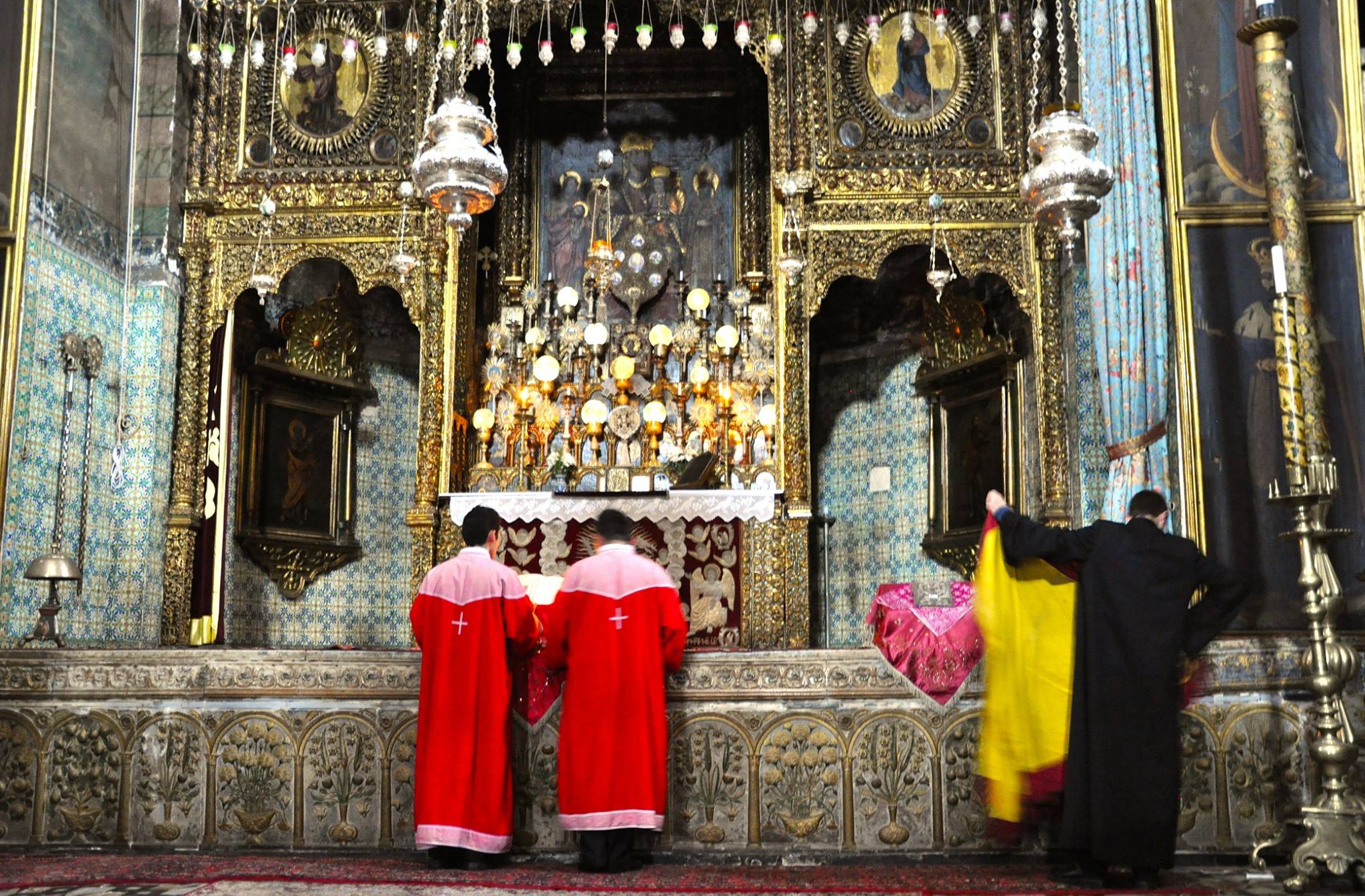Originally published by Ma’an News Agency on April 23, 2015.
JERUSALEM (Ma’an) — The Armenian community of the Holy Land this week marks the 100th anniversary of the beginning of a series of massacres and pogroms against the community in their ancestral homeland in Eastern Anatolia.
Large numbers of the community’s approximately 5,000 members in Palestine are expected to take part in commemorations for the 1.5 million lives lost in the Armenian Genocide, which took place during the dying days of the Ottoman Empire.
The official centenary date falls on Friday, April 24, but commemorations are expected to begin on Thursday and continue over two days.On Thursday evening at 6.15 p.m., bells from the 13 major churches in the Old City will toll 100 times to commemorate the deaths.
Later that night, Armenians will march by candlelight from the Old City to an Armenian church in West Jerusalem near the German Colony. The church is part of a large amount of property Armenians lost in 1948, when Zionist militias expelled Palestinians — Arab and Armenian alike — from their homes in what became Israel.
On Friday evening, meanwhile, inter-communal services will be held at the Church of the Holy Sepulcher with representatives of all churches from across Jerusalem present.
Earlier in the day, a protest will be held in front of the Turkish Consulate in Jerusalem. Although the killings were organized by elites in the Ottoman Empire, the predecessor state to the Turkish Republic, Turkey has long denied that the killings were pre-planned and community members are angry at what they see as Turkey’s continued impunity for the slaughter.
Armenians have been a part of the fabric of the Holy Land since the 5th century, when the Armenian Kingdom was the first in the world to convert en masse to Christianity. Since then, the community has maintained a small base of a few hundred in Jerusalem centered on a few holy sites.
Church spokesman and historian Kevork Hintlian told Ma’an that the situation changed dramatically after the Genocide, when thousands of refugees fled Anatolia and sought refuge in the neighboring Arab provinces of the Ottoman Empire.
While most ended up in Lebanon, Syria, and Iraq, a few thousand made their way to Palestine and community numbers surged to around 7-8,000. In 1948, community numbers peaked at around 15,000, but the ethnic cleansing of Palestine made more than two-thirds of the community’s refugees yet again, fleeing either to the West Bank, Lebanon, or Europe and North America.
Today, more than 4,500 Armenians continue to call Palestine home, with the numbers spread between 2,500 in Jerusalem, Bethlehem, and Ramallah, 1,000 in Jaffa, and 1,000 in Haifa. Although the numbers are much less than they once were, Hintlian told Ma’an that after years of emigration they had steadied in the past decade.Armenians are not the only Palestinian community whose history in the land can be traced back to the Genocide.
There are also about 2,000 Assyrians in the Holy Land today who trace their roots to the Genocide. About two-thirds of that community, which also comes from Eastern Anatolia, lives in Bethlehem, with the remainder primarily in Jerusalem. Today most Assyrians live in northern Iraq, with diaspora populations spread around the world as well.
Widely recognized as one of the first genocides of the 20th century, the slaughter of 1.5 million Armenians through deportation and killing is today considered a turning point in the development of the Armenian nation.
Previously a mostly rural community spread across large swathes of the Ottoman Empire in Eastern Anatolia as well as in the southern Caucasus under Russian control, the genocide wiped out almost entirely the Armenian population of Turkey.
The community had long intermingled and been a part of the shared Turkish-Armenian-Kurdish culture of the region, but the pogroms ended centuries of history and left the community dispersed across the Middle East and the world.
In the last decade a large movement has emerged within Turkish society to acknowledge the Ottoman Empire’s responsibility for the killings. Marches take place yearly on April 24 in major cities across Turkey, in addition to those around the world.
Despite this, the Turkish government continues to deny the Empire’s involvement in the killings, and the issue remains a sensitive issue in the country’s relations with the rest of the world.
